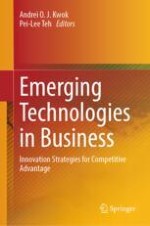2024 | OriginalPaper | Buchkapitel
Improving Agriculture Financing Opportunities for Farmers Using Blockchain Technology: A Proof-of-Concept Development and Case Scenario Illustration
verfasst von : Premaratne Samaranayake, Pradeep Ranasinghe
Erschienen in: Emerging Technologies in Business
Verlag: Springer Nature Singapore
Aktivieren Sie unsere intelligente Suche, um passende Fachinhalte oder Patente zu finden.
Wählen Sie Textabschnitte aus um mit Künstlicher Intelligenz passenden Patente zu finden. powered by
Markieren Sie Textabschnitte, um KI-gestützt weitere passende Inhalte zu finden. powered by
